
If you’re on your journey of finding that perfect distro for your system, the chances of you ending up with Ubuntu-based distros are pretty high.
And, you're maybe wondering why?
Well, it is no surprise that Ubuntu is one of the most beginner-friendly Linux distros. It is also incredibly popular, which is why you will also find a massive user community backing it. Not just that, it is also widely used on cloud servers.
So, having Ubuntu as the base for any Linux distribution should come with useful perks, right?
And that is why I came up with a list of the best Ubuntu-based distros in hopes that you may find something worthy enough to stop you from committing any deadly sins of distrohopping. 😆
1. Official Ubuntu Flavors
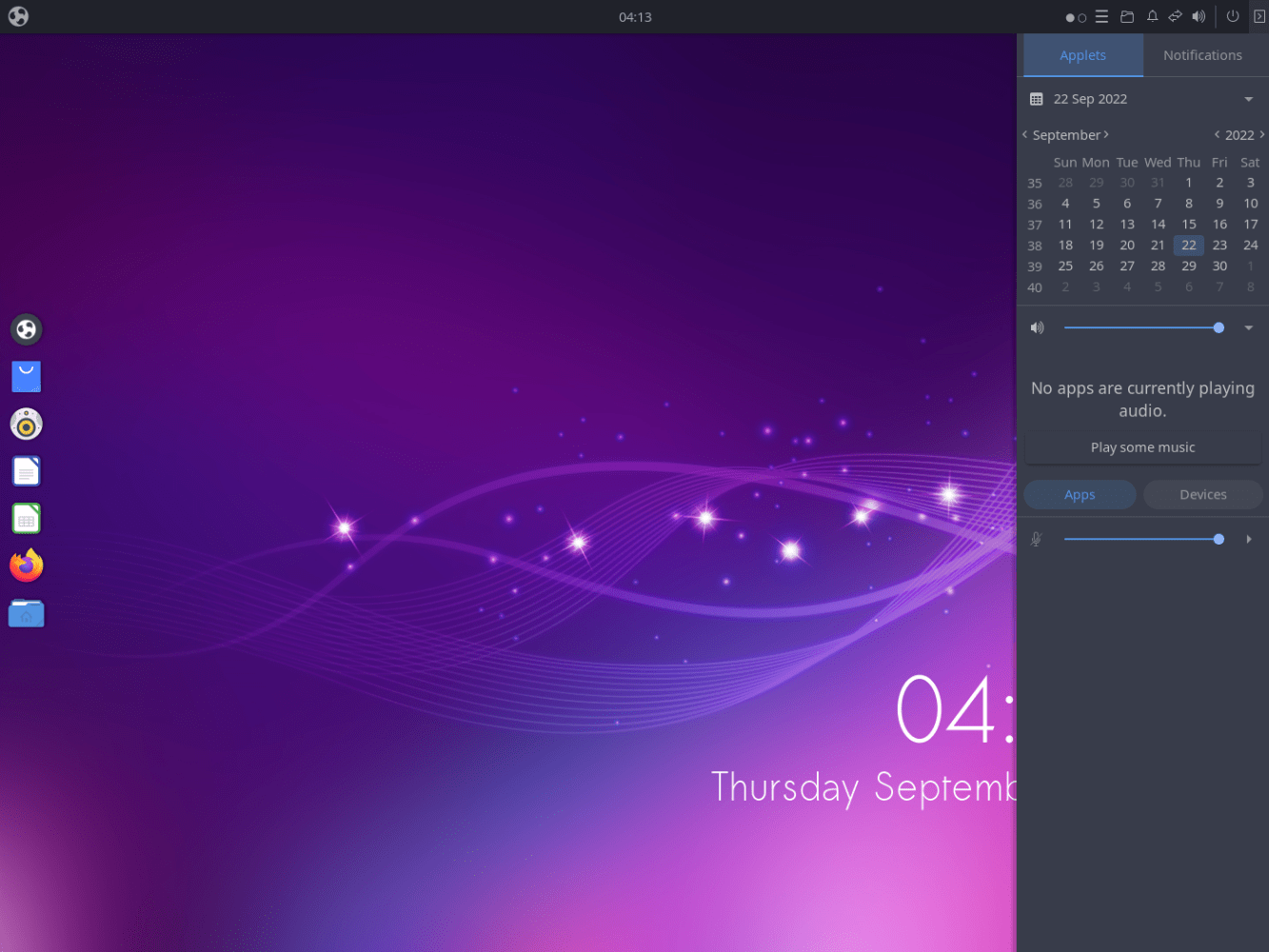
If you do not like Ubuntu’s official offering with GNOME, you can try one of the many official flavors that provide a different desktop environment on top of Ubuntu.
In simpler terms, you’re going to get the same Ubuntu experience, but, with a different user interface.
To make your user experience more pleasant, these desktop environments are pre-configured and themed accordingly, making them the perfect choice if you’re looking for something that works out of the box.
These are the currently available official Ubuntu flavors:
- Kubuntu (KDE Plasma)
- Lubuntu (The least resource-hungry offering, using LXDE/LXQT)
- Ubuntu Studio (A distro for creators)
- Ubuntu Budgie (Budgie desktop)
- Ubuntu Kylin (Tailored for Chinese users)
- Ubuntu Unity (Unity desktop)
- Ubuntu MATE (MATE desktop and tools)
- Xubuntu (Xfce desktop)
If you were confused about which Ubuntu version to opt for, our handy guide can be a great resource:
Suggested Read 📖

2. Linux Mint
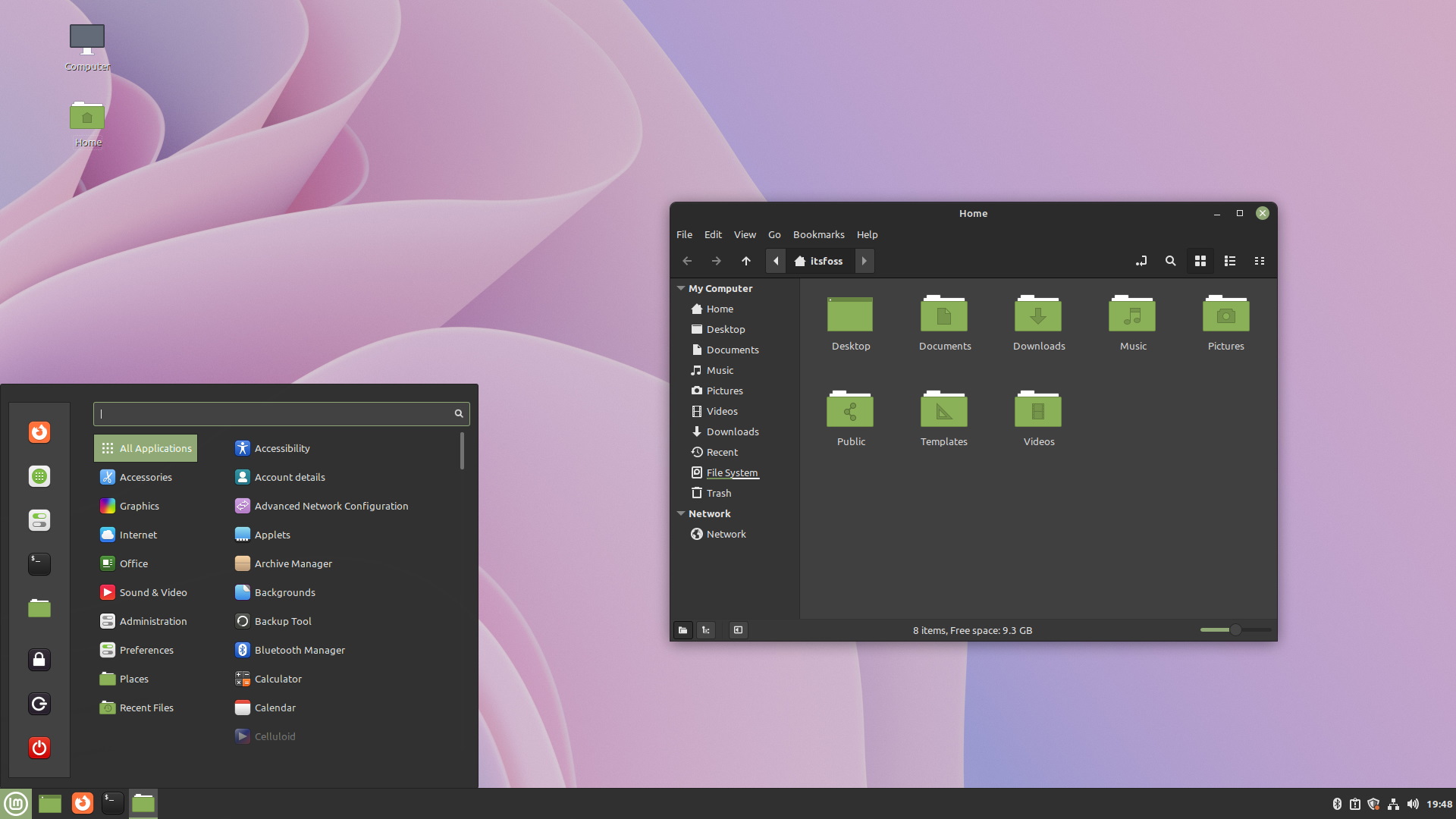
If I had to describe Linux Mint in one line, it would be, “Simple and elegant user experience with enough room for advanced users”.
With Linux Mint’s Cinnamon desktop, you can expect a polished and tailored experience and tools like Timeshift just sweeten the deal further, giving you a seamless experience with everything.
Linux Mint includes the essentials, which include an office suite, a set of applications to satisfy your multimedia consumption needs, and more. These perks make it perfect for beginners.
Key Features of Linux Mint:
- Beautiful UI.
- No Snap by default.
- Familiar experience for Windows users.
- Managing codecs and hardware drivers is pretty convenient.
- A straightforward, easy-to-use experience with the Cinnamon desktop environment.
3. Pop!_OS
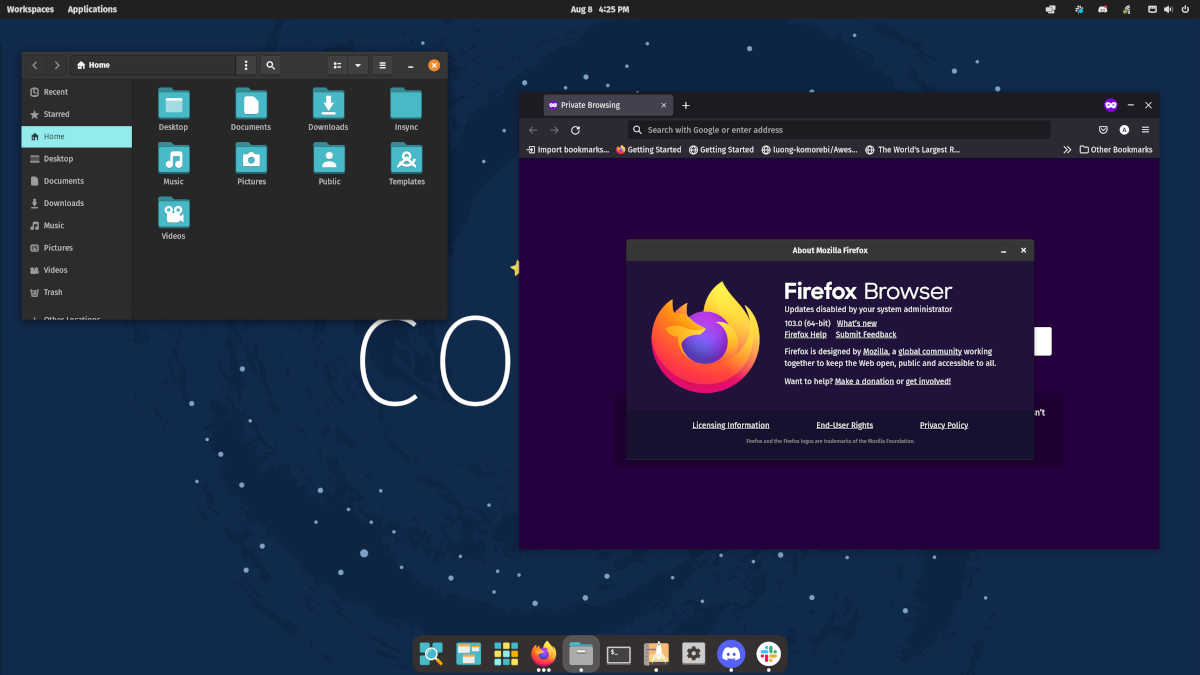
Developed by System76, a popular open-source hardware manufacturer, Pop!_OS 22.04 LTS is what I preferred to use as my daily driver for a long time, and there’s a strong reason behind it.
Pop!_OS regularly updates its Linux kernel package, running Linux kernel 6.6.6 at the time of writing. Yes, I’m aware that you can easily upgrade to the latest kernel in Ubuntu, but having official support is convenient, which is where Pop!_OS excels as an Ubuntu-based distro.
Apart from the latest kernel, you also get a beautiful cosmic desktop, and some preinstalled apps such as Eddy to install deb packages conveniently, apply disk encryption by default, and many other features to have a pleasant experience!
Key Features of Pop!_OS:
- Out-of-the-box support for Nvidia graphics.
- Cosmic Desktop (Customized GNOME experience).
- Provides basic functionality of Window manager.
- A recovery partition to revive the system from disasters.
4. KDE Neon
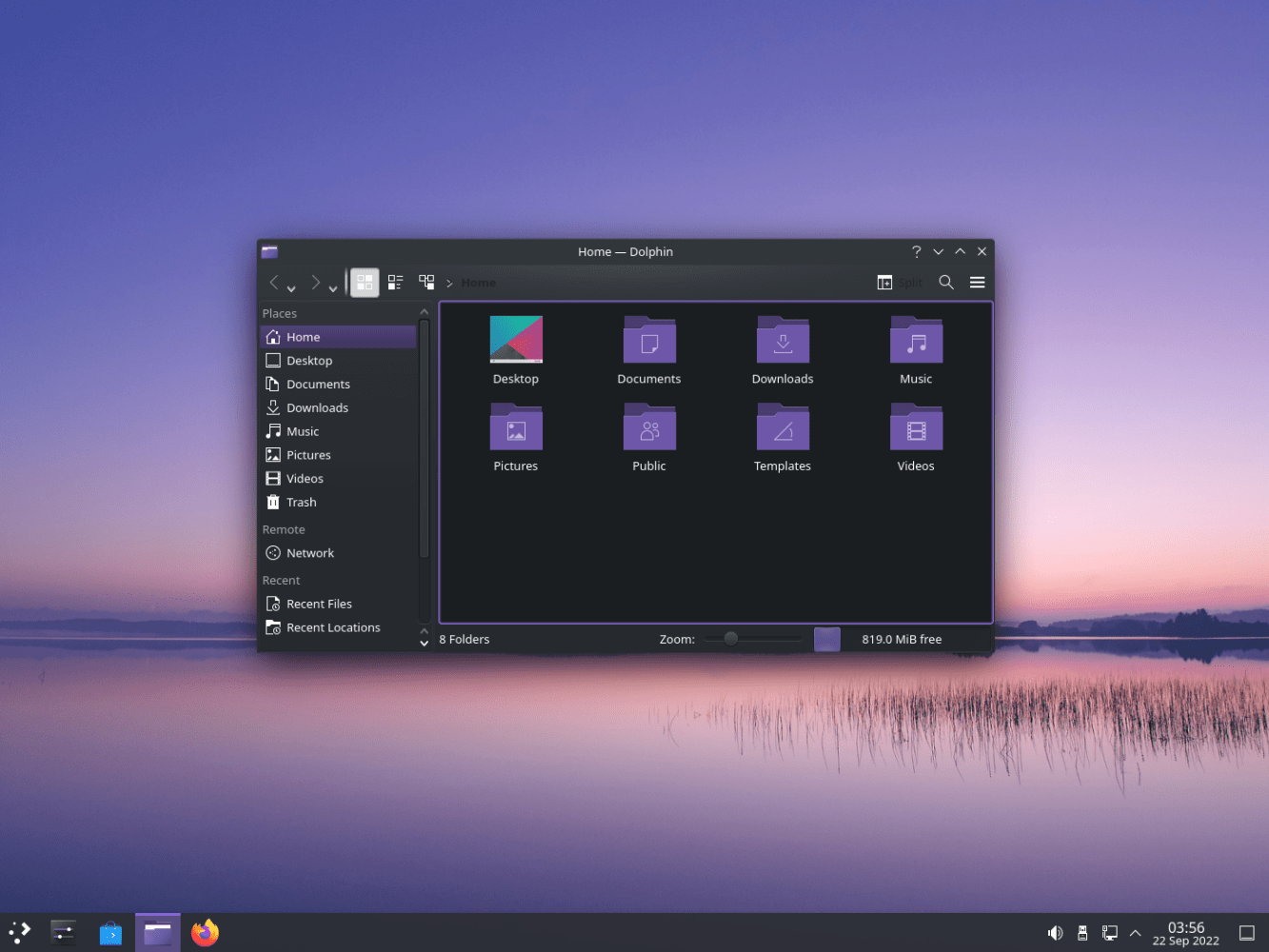
If you don't want the latest KDE experience, then KDE Neon is not for you. In other words, it is not tailored as a daily driver but aims to provide the bleeding edge KDE experience.
It is still one of the best Ubuntu-based distributions if you want to experience KDE’s latest offerings with an Ubuntu base.
There are plenty of other distros based on KDE Plasma; Kubuntu is your best bet if you do not necessarily want the latest experience.
And apart from that, KDE Neon ships with the bare minimum set of preinstalled tools, so users can have enough room to decide what they prefer for specific tasks.
Key Features of KDE Neon:
- Gets you the most recent version of KDE Plasma.
- The most vanilla KDE offering with an Ubuntu base.
- Features the latest officially released KDE software package.
5. elementary OS
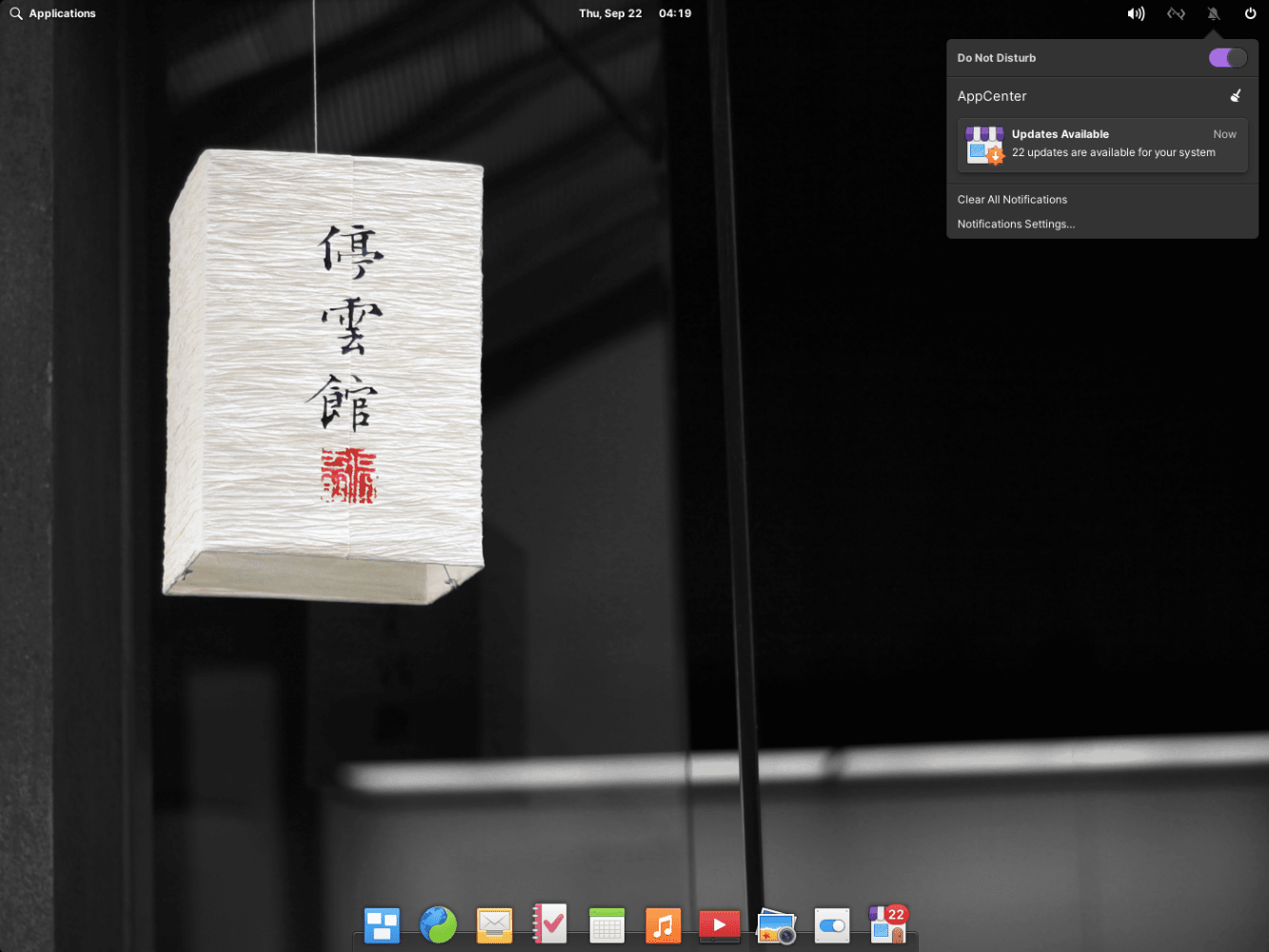
So, you are a fan of macOS and want to enjoy Linux? Well, then elementary OS will not disappoint you in any way.
As the developers have developed Pantheon desktop just for elementary OS, you’d notice the attention to detail in every aspect, be it a dark mode or the accent colors. You get a great user experience with elementary OS.
Compared to other Ubuntu distributions, it may not have a fast release cycle. But, they tend to offer a solid experience with every release.
Key Features of elementary OS:
- A tailored App Center.
- Has a picture-in-picture mode.
- Uses Pantheon, one of the most elegant desktop environments.
6. Zorin OS
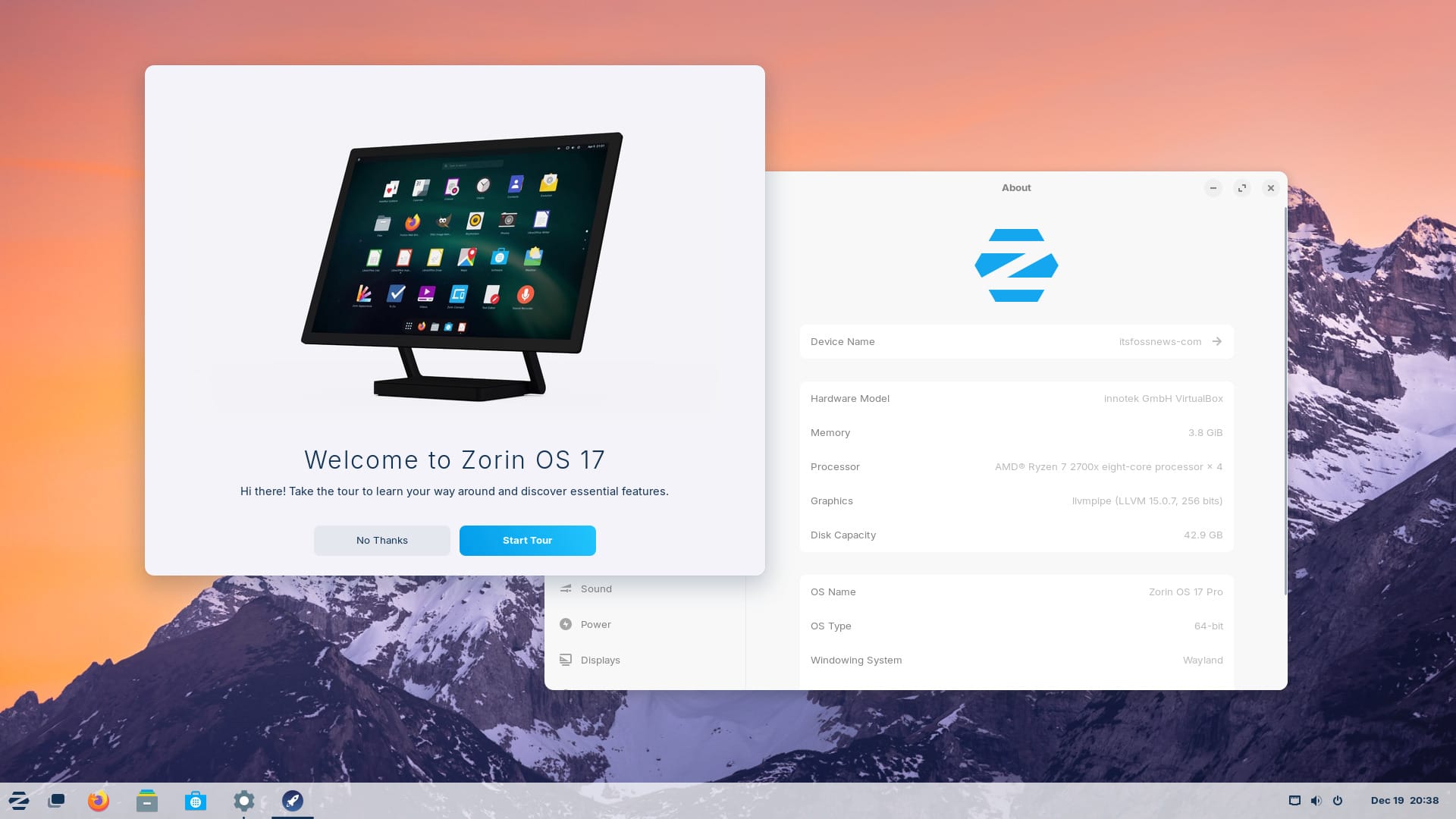
Zorin OS is yet another Ubuntu-based distro that gives you a polished experience. It makes Linux look stunning with its wallpapers, user interface tweaks, and other changes.
You can use its Zorin Connect tool to integrate your mobile device and computer seamlessly so that you can transfer files, control audio playback, and even use the mobile device as a touchpad!
Key features of Zorin OS:
- Ability to install Windows software without many tweaks.
- A lite version of Zorin OS can revive a PC over a decade old.
- Different layouts are available, resembling Windows and macOS.
7. Linux Lite
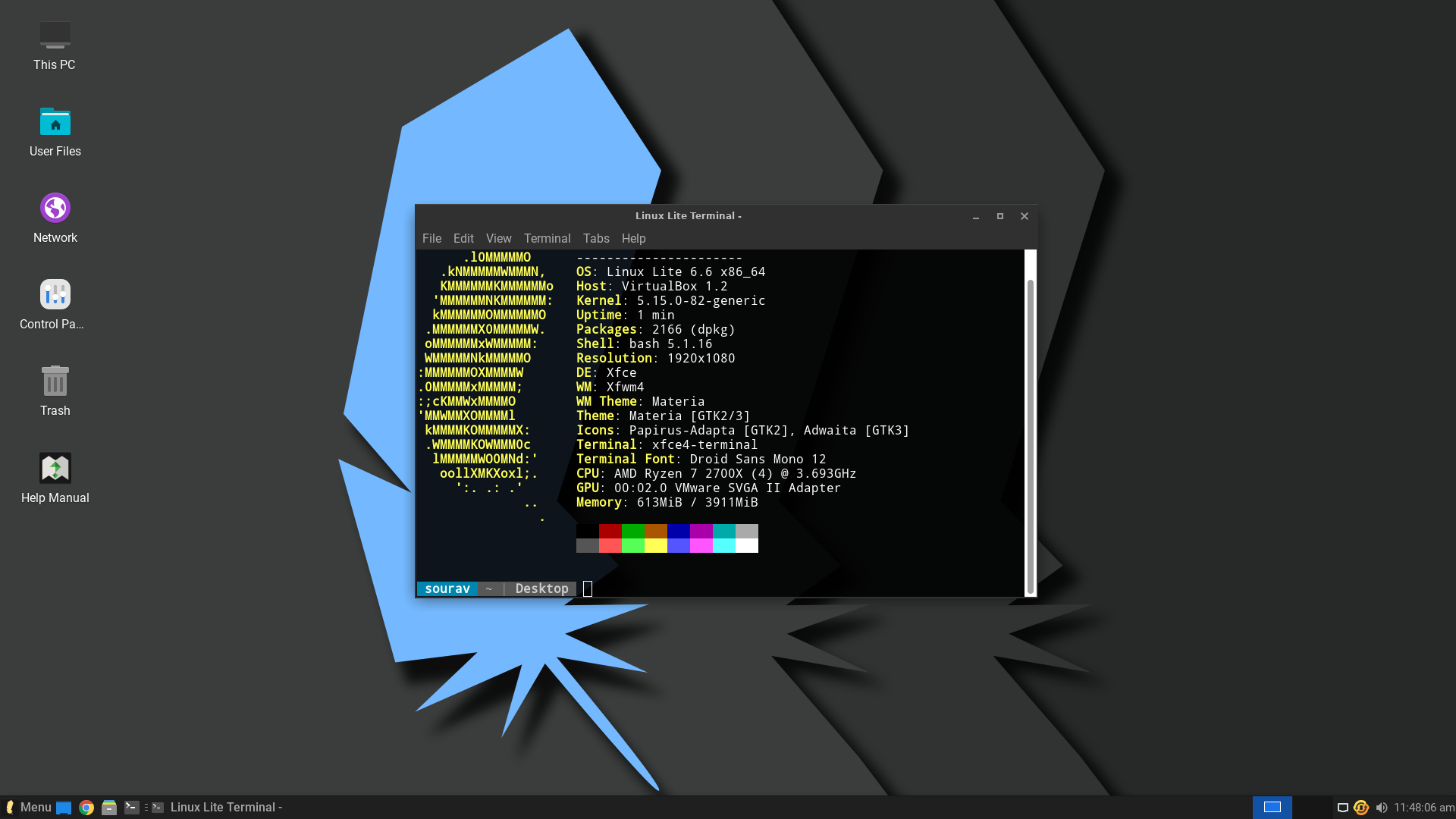
If you are searching for a lightweight distro that just works out of the box, then Linux Lite is made for users like you. It is one of the best (and simple) Windows-like Linux distributions to install.
Stability is another core feature of Linux Lite that explains why it uses Xfce as its main desktop environment.
Key Features of Linux Lite:
- Easy to use.
- Extremely lightweight.
- You can expect a stable experience with Xfce and the LTS version of Ubuntu.
8. Voyager
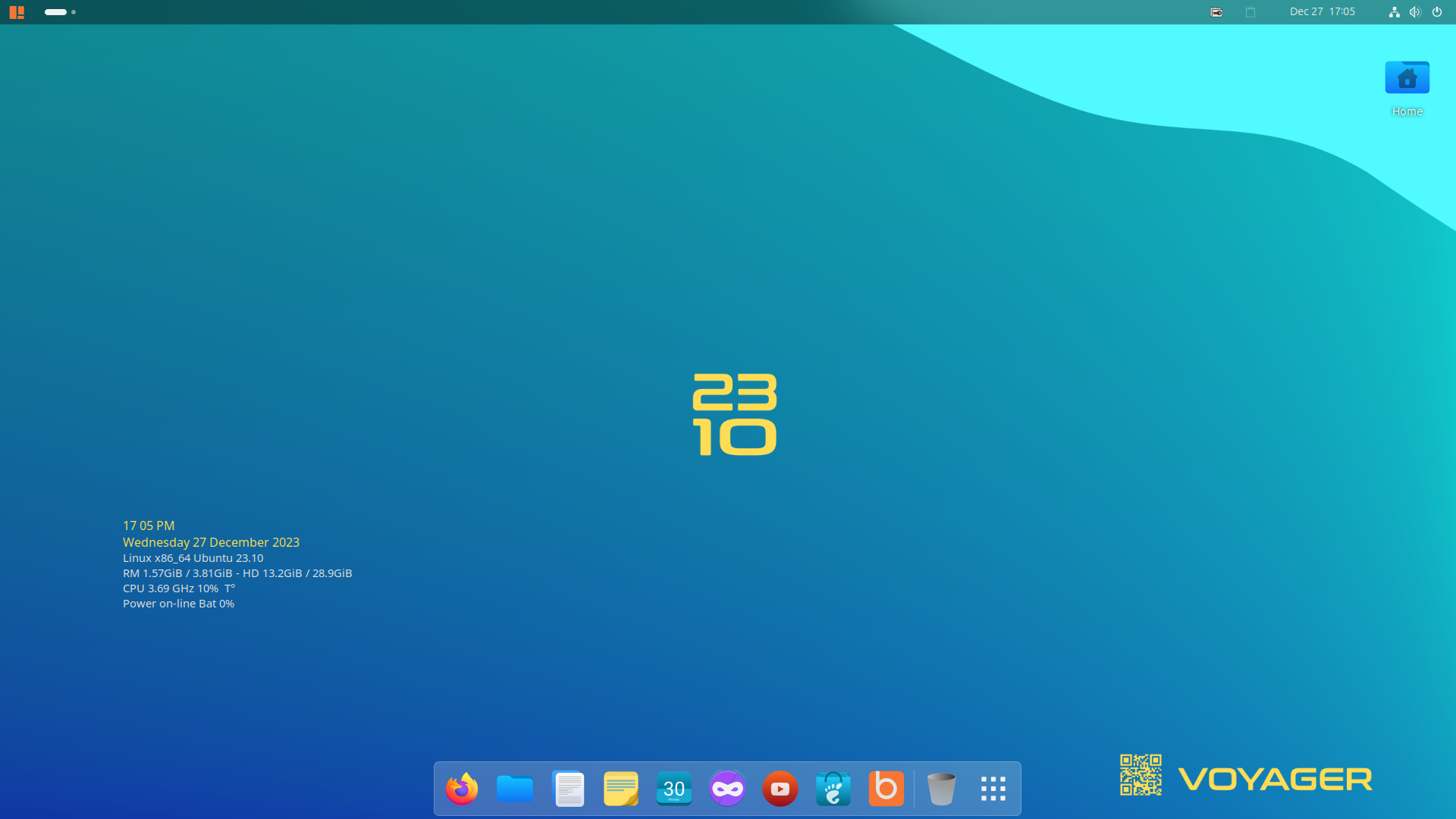
Voyager is an Ubuntu-based Linux distro that features GNOME and Xfce in its recent 23.10 avatar.
The distribution provides user choice from the get-go. If you like ergonomics, start a GNOME session or go with Xfce for a simpler and faster experience.
Voyager comes with a customized interface made to feel like an old, classy Linux experience.
I’d recommend this to anyone who loves to switch between environments, is seeking a customized experience, and the stability of Ubuntu.
Key Features of Voyager:
- Get regular updates based on the latest Ubuntu releases.
- Users can switch between GNOME and Xfce sessions in its 2-in-1 edition.
- Pre-configured with GUI elements and plugins to have a pleasant user experience.
9. Feren OS
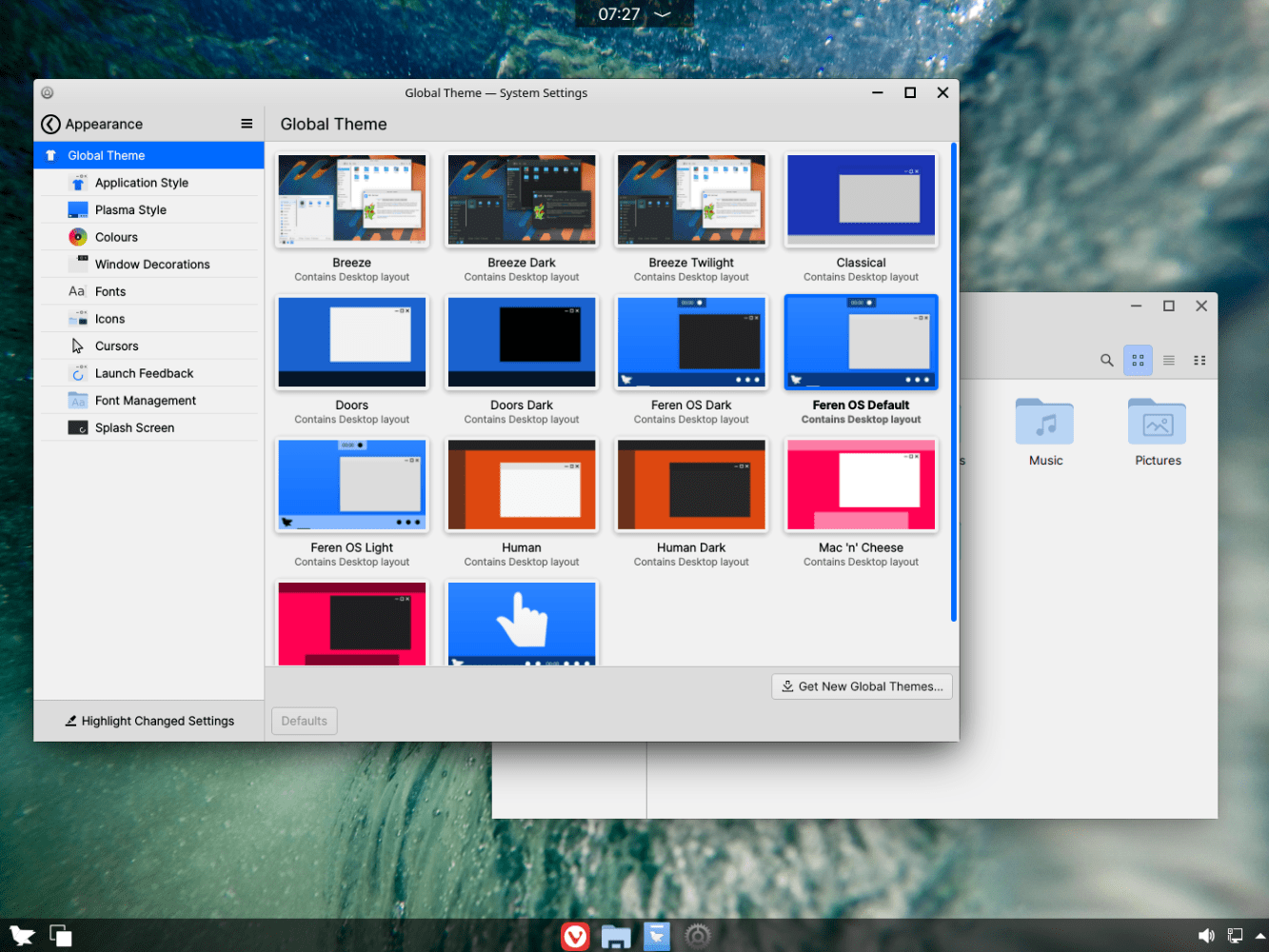
I already mentioned how Zorin OS offers you pre-configured layouts to better suit your preferences, but, it features GNOME. What if you’re a KDE fan?
Well, then Feren OS is just the one for you!
Apart from a pre-configured KDE experience, the memory footprint was also convincing to have Feren OS on this list. I’d suggest Feren OS to anyone who wants to get started with an Ubuntu-based distro powered by KDE Plasma desktop.
Key Features of Feren OS:
- Customized yet quite light on system resources.
- Web browser manager with pre-tweaked browsers for a better experience.
- Gets you a minimally configured and fine-tuned KDE experience out-of-the-box.
10. Rhino Linux
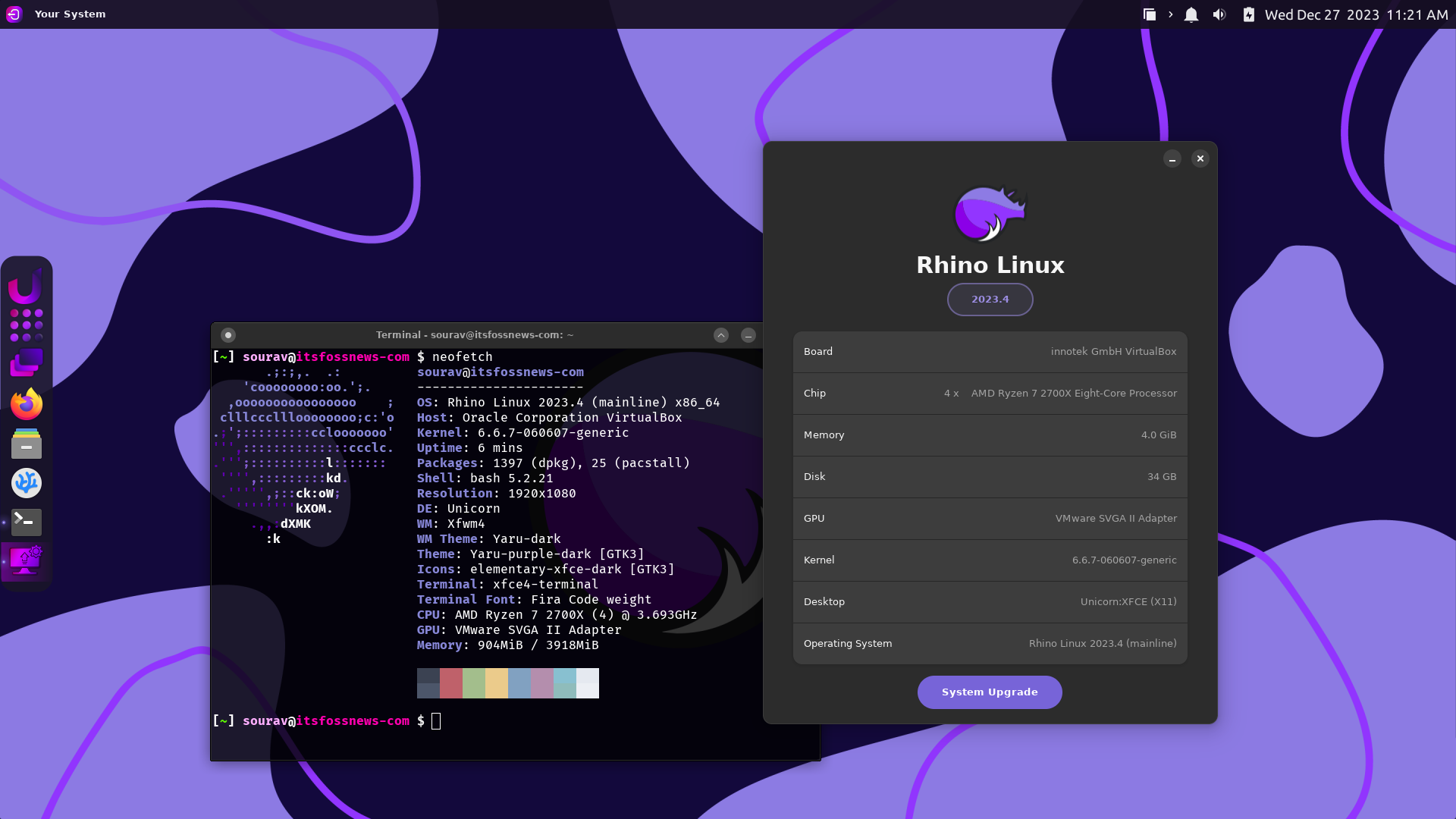
As the successor to the Rolling Rhino Remix project, Rhino Linux is an unofficial variant of Ubuntu that tries to provide users with a stable rolling-release experience that is not really common.
I have yet to try it, but going by the looks of it, it looks like a viable option for those looking for some Arch Linux niceties, but with Ubuntu.
Key Features of Rhino Linux:
- A rolling-release distro
- Features the Pacstall package manager.
- Uses a heavily customized version of XFCE.
Suggested Read 📖
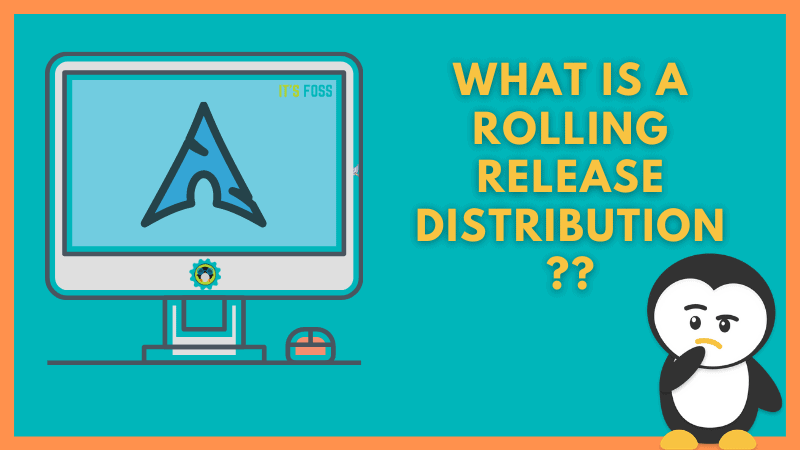
11. UbuntuDDE Remix
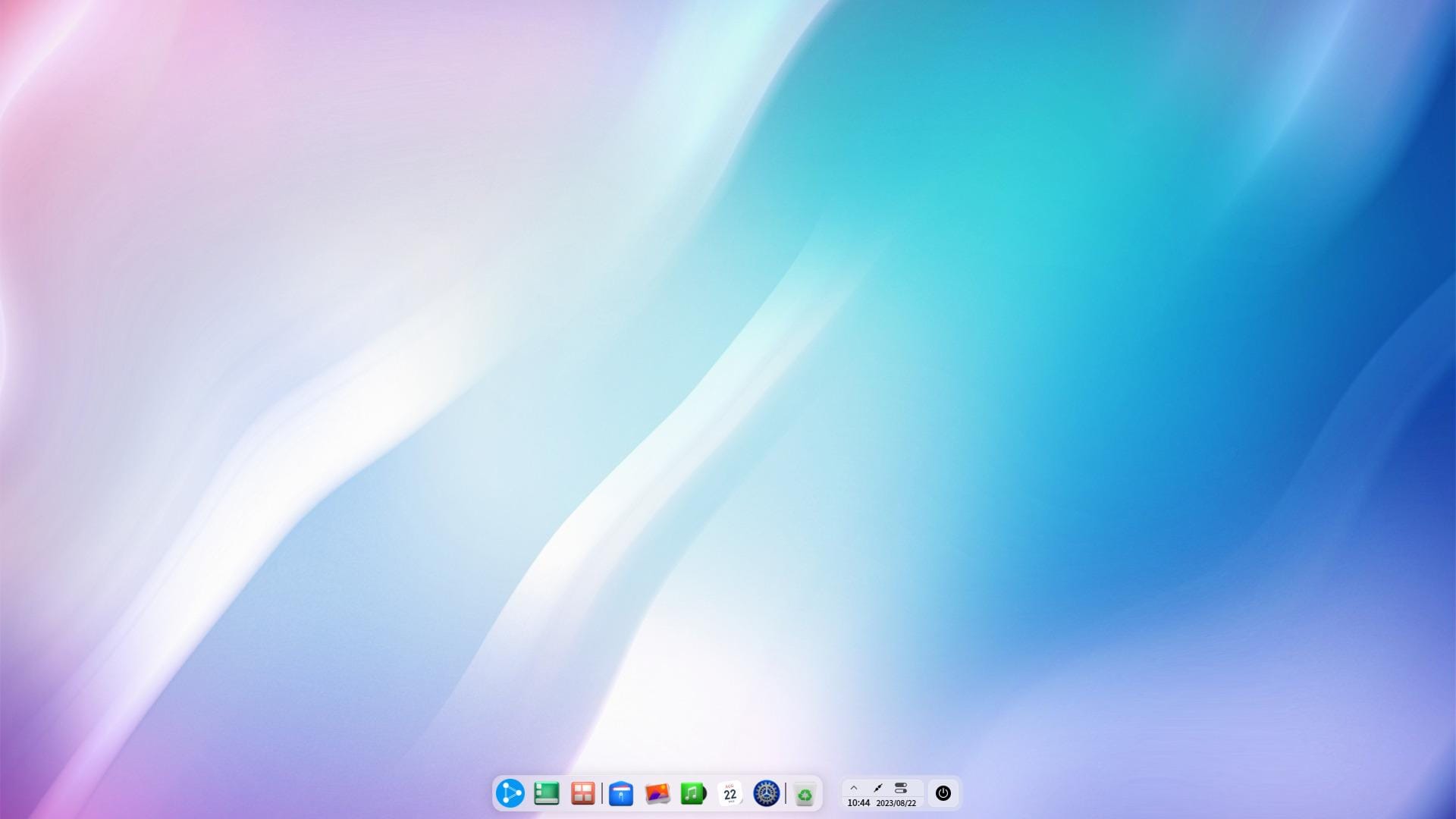
Do you like the Deepin Linux distribution, based on Debian? But, not interested in trying it?
Well, in that case, you can try UbuntuDDE Remix. It is not an official flavor, but it works pretty well with Ubuntu at its base.
Unlike Deepin Linux, it is not primarily tailored for Chinese users. So, you will find the language settings and the repositories set to the ones that work better than on Deepin Linux.
Key Features of UbuntuDDE Remix:
- Beautiful user interface
- A modern control center
- Deepin desktop environment
What's Your Perfect Ubuntu-based Distro?
Ubuntu remains the dominant choice to provide an easy-to-use experience to newbies and advanced users.
Every so often, we just want to get things done without the need to customize or control the various aspects of our distribution. In such cases, Ubuntu-based distros like the ones listed above save your time and give you plenty of options according to your preference.
💬 If you have to use one of the above-mentioned distros, which one would it be? Share it in the comments!



